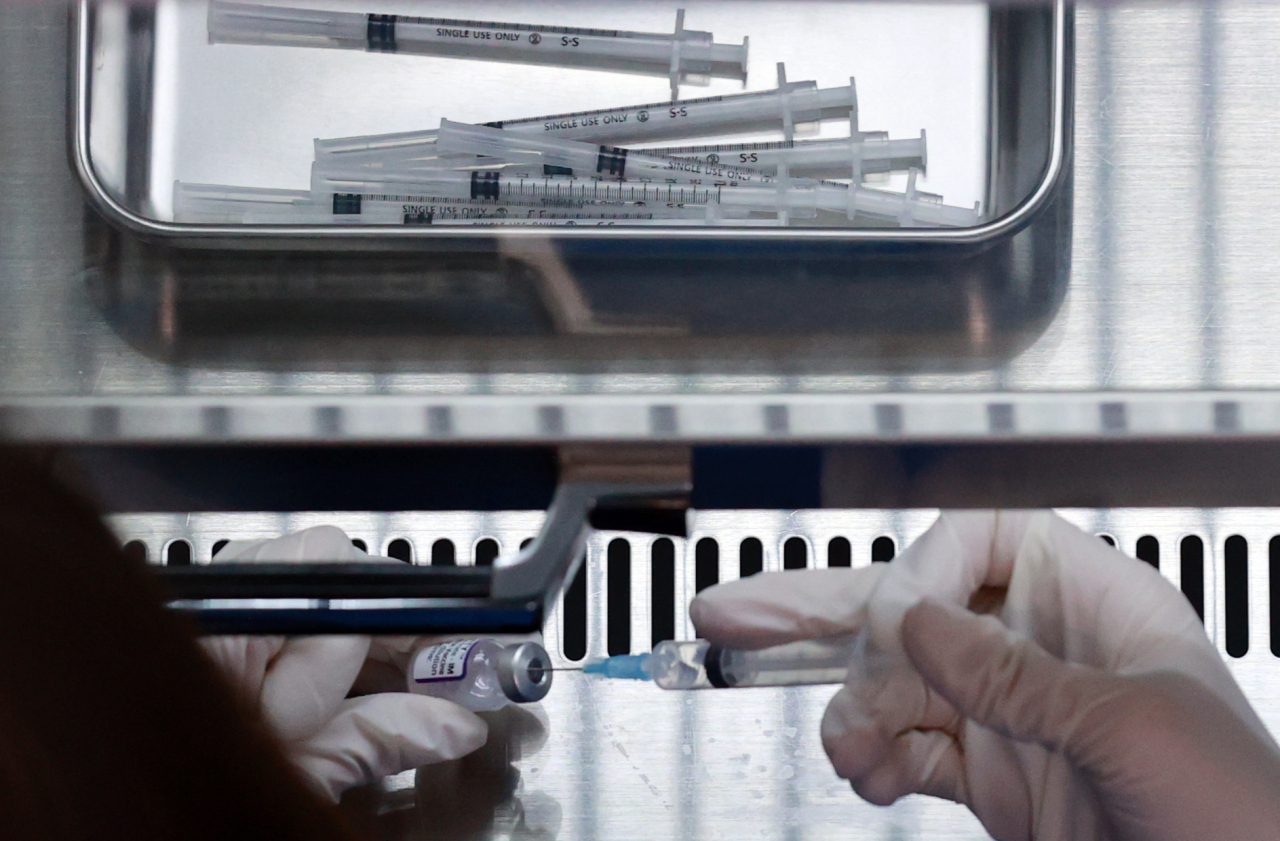 |
Photo shows health care worker extracting a dose from a vaccine vial. (Yonhap) |
South Korea will add menstrual disorders to its list of reportable adverse events following COVID-19 vaccination, according to a Thursday parliamentary audit report of the Korea Disease Control and Prevention Agency.
The national health agency said in response to Rep. Kang Sun-woo of the National Assembly’s health and welfare committee that it would create a separate category for menstrual disorders within its vaccine adverse event reporting system.
But this addition does not mean that the reported post-vaccination menstrual discomfort, delays or disorders are linked to the vaccines, or that they would qualify for government compensation, the agency said in response to press inquiries.
The first reports in Korea about intermenstrual bleeding after vaccination emerged in March among nurses who received AstraZeneca’s vaccine.
The matter started gaining attention after a disproportionate rise in reports of menstrual changes as the rollout extended to the general public in August. Several petitions calling for investigations into the vaccines’ possible impacts on periods have been posted on the presidential website since.
According to the official database, as of Oct. 27, there were 712 reports of intercycle bleeding after COVID-19 vaccinations.
But menstrual irregularities after vaccination may have gone underreported as until very recently a special process was required to submit a report on any event not included on the list of reportable events following vaccination, according to MBN, the local broadcaster that first covered the issue.
On Aug. 30 the US National Institutes of Health announced that it was dedicating $1.67 million to research into potential links between COVID-19 vaccinations and abnormal menstruation.
The first COVID-19 vaccination in Korea took place Feb. 26 with AstraZeneca’s vaccine. To date, 56 percent of Korea’s 51 million people have been fully vaccinated, either with a two-dose vaccine regimen or one dose of Johnson & Johnson’s vaccine.
By Kim Arin (
arin@heraldcorp.com)








